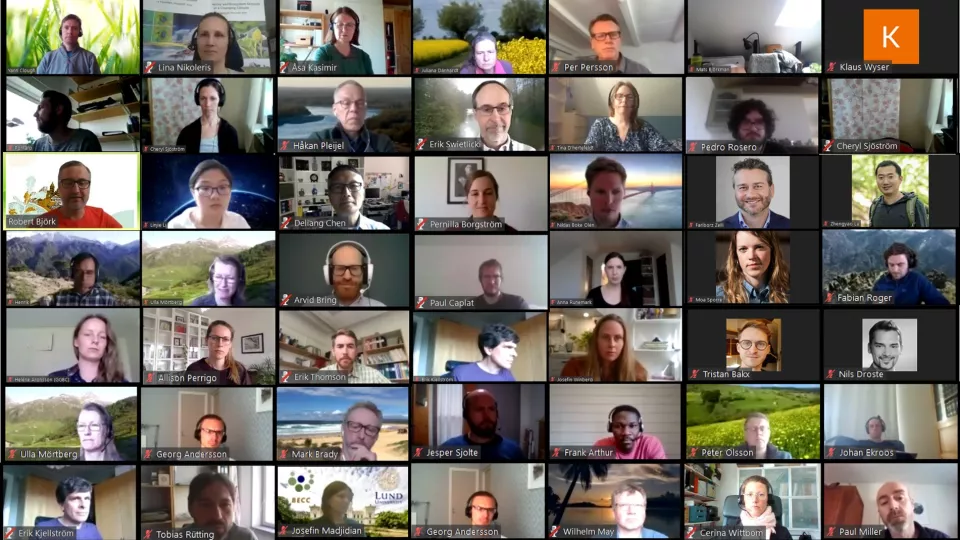April 23 and 24 were two very rewarding days, filled with interesting sessions, poster presentations, office yoga, group discussions, as well as fruitful conversations and sharing of expertise. The event allowed for interesting discussions among researchers and stakeholders across disciplines. Our aims were ambitious – to exchange knowledge and discuss challenges, conflicts and potential synergies on the topics of biodiversity, ecosystem services, climate change, land use, oceans, the atmosphere and climate modelling – taking the IPBES and IPCC reports as points of departure.
About the event
ipbes.net
ipcc.ch
Experts on global scale physical and biological feedbacks informed us about the importance of improved understanding of these processes, as they are key for future projections of the Earth system. IPBES and IPCC experts further presented and discussed their respective takes on synergies and conflicts between climate actions and biodiversity conservation, including possibilities for joint efforts. Contributing authors to the IPBES and IPCC reports shared their experiences on the working process, and we learned about FORMAS’ strategy for synthesizing research as well as the strategies of a research team to recontextualize global findings of the reports back to local, Swedish contexts.
Participants discussed the meaning of different formats, e.g. reports, reviews and synthesis, and that they can play different, complimenting roles for the communication among researchers and stakeholders. We learned what knowledge gaps exist, and discussed how BECC and MERGE research can best contribute to filling these gaps, and how knowledge gaps can act as lodestars for future BECC and MERGE research.
Videos from most presentations will be available soon, as well as a report, on the BECC and MERGE websites.
